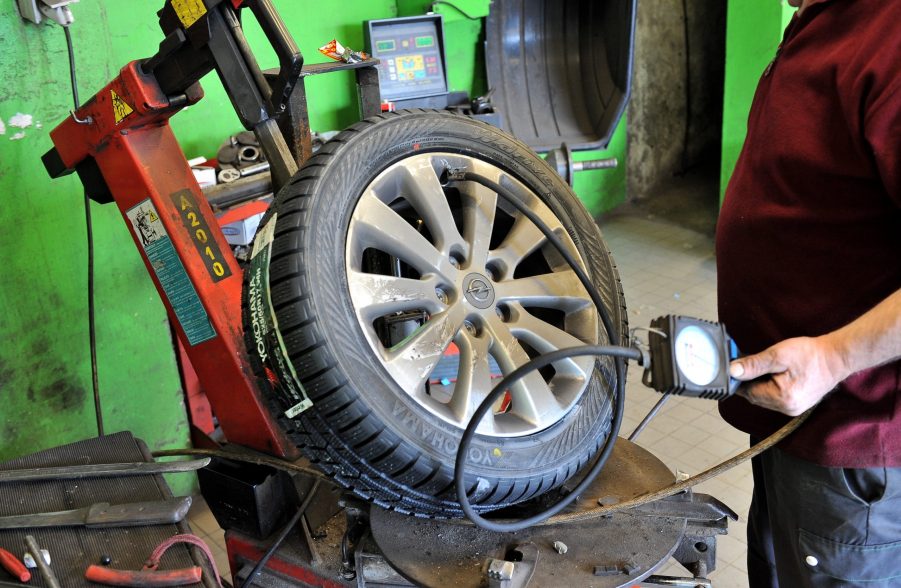
The Pros and Cons of Filling Your Car’s Tires With Nitrogen
Keeping your car’s tires properly inflated is important, but there’s great debate over whether drivers should use air or nitrogen. The thought of using nitrogen sounds more exotic, like drinking special bubbly water out of a glass bottle. But it is really that advantageous over the good ‘ol compressed air? Let’s have a look at the pros and cons of using nitrogen to decide.
Pro: Tires leak nitrogen slower than air

Believe it or not, air leaks out of your car’s tires over time. According to U.S. News, it’s one of the reasons that modern cars have tire pressure monitoring systems and why you should check the tires every so often. Fortunately, if your car’s tires are filled with nitrogen, they won’t deflate as quickly compared to when they’re filled with air.
Why? Science says that nitrogen atoms are physically larger than oxygen atoms, so they take up more space and thus need a larger space in the tire to leak out of.
Pro: Nitrogen keeps tire pressure more consistent

According to a study conducted by the NHTSA, the main reason that air escapes from tires is due to the fluctuation in ambient air temperatures in different seasons. That’s why your car’s tire pressure monitor light may come on in the winter because the molecules contract in colder temperatures. But when you start driving, the tires start to heat up and the molecules expand. In this situation, nitrogen-filled tires don’t fluctuate with the air temperatures as much, so it keeps the tire pressures more consistent.
Pro: Nitrogen may reduce tire wear
Nitrogen is an inert gas, so it doesn’t react with its surroundings even when those surroundings are the inside of a tire. That means that the nitrogen atoms have a greater propensity to keep the tire inflated to the proper pressure which, in turn, should lead to reduced tire wear over time.
Con: They don’t leak that much slower than air
While nitrogen does leak out of your car’s tires more slowly than compressed air, it doesn’t do it at a significantly slower rate. As such, it may not be worth adding the larger atoms to your car’s tires.
Con: Nitrogen costs more than air

Have you ever had your car’s tires replaced and get charged $30 to $70 for it? Yes, that’s a rip-off. Especially considering you can fill up a tire with compressed air for free. In fact, some tire shops don’t even charge for nitrogen, which should be the case across the board. However, for the places that do charge, just make sure that you’re not paying an exorbitant amount for nitrogen. Either way, it definitely costs more than using plain old air.
Ultimately, using nitrogen over compressed air isn’t that advantageous
While this list technically shows that there are more pros than cons when filling your car’s tire with nitrogen, that doesn’t mean it’s more advantageous. If anything, nitrogen just keeps your tires inflated for just a little bit longer, but that in itself isn’t enough to justify any cost that you might pay for it. Our recommendation is to use compressed air when possible, but if you must, using nitrogen will work just fine. Just don’t pay $70 for it.



